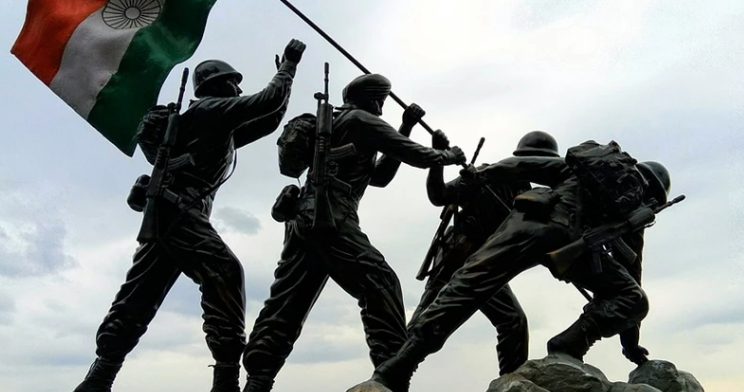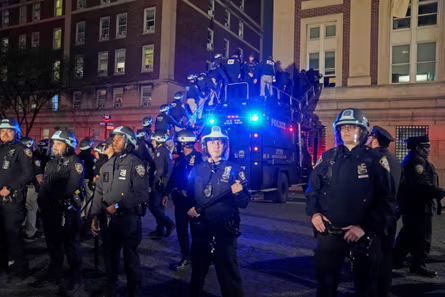The upcoming US-initiated “summit for democracy”, which is to be hosted by the US, and the list of invitees from South Asia, raises more questions than it answers.
The recent spate of civilian killings and arbitrary detentions in Indian controlled Kashmir is fueling a new spell of unrest in the Himalayan region.
Soon after assuming office in January, US President, Joe Biden, announced his plan to hold a virtual summit for democracy to “push back on authoritarianism”.
With the list of the invitees out this week, critics are wondering whether it’s a summit for democracy or hypocrisy.
From South and Central Asia, the invitees include India, Pakistan, and Nepal, who all share borders with America’s main rival, China. Some see this as a tactical move to woo these countries in order to counter China’s growing influence in the region.
The much-hyped virtual summit for democracy, scheduled for December 9th to 10th, revolves around the three key themes of defending against authoritarianism, addressing and fighting corruption, and promoting respect for human rights, according to a US State Department statement.
American strategic interests
But that’s just one side of the story. The other side reveals America’s global hegemonic ambitions and the desperation to contain China, which is clearly evident from the list of invitees, especially in the South Asia region.
The Summit brings together nascent democracies, as well as authoritarian states, depending on the whims and fancies of policy “specialists” in Washington and America’s strategic interests.
India and Pakistan, the two regional stalwarts who exert a considerable influence on the international stage, have both been invited.
Nepal has also been invited despite a poor democracy record. Interestingly, all three countries share borders with China, America’s chief rival.
The Maldives, which has emerged as a key battleground for India-China rivalry, also figures on the list.
Bangladesh and Sri Lanka have been snubbed, which points to the possible direction of future US policy in South Asia.
For Bangladesh, It is an outright humiliation to be seen as being less democratic than many other US allies.
The mission of Sri Lanka has been attributed to Prime Minister Rajapaksa’s growing camaraderie with Beijing.
Afghanistan’s exclusion was expected but who’s responsible for the erosion of democracy there? The US Military-Industrial Complex.
The list of invitees for the so-called democracy Summit, to be hosted by the chief saboteurs of democracy worldwide, The USA, is packed with snubs, and surprises.
While China and Russia are surprisingly omitted, India and Pakistan are both included. invitations to the estranged South Asian neighbors have less to do with democracy and more to do with America’s strategic interests and growing rivalry with China. While the Indian Premier, Narendra Modi, is likely to attend the summit, Pakistan hasn’t taken the call yet.
Invitations to India and Pakistan for the so-called democracy summit did not come out of the blue, as the Biden administration has stepped up efforts to woo the two countries following the botched US exit from Afghanistan, it also has to be seen in the context of China’s growing influence in the region.
India has traditionally dismissed global concerns over issues of democracy and human rights, describing them as internal matters.
In the last few years New Delhi’s brutal clampdown in the Jammu and Kashmir region, anti-Muslim violence in New Delhi, and protests over controversial farm bills and a citizenship Amendment Act drew global condemnation.
But in view of the rapidly changing geopolitical dynamics in the region, Washington sees New Delhi as a key ally.
On the other hand, Pakistan has been under intense scrutiny over issues related to the rule of law, terrorism, the security of minorities, and endemic corruption.
Imran Khan’s government is beset with problems ranging from homegrown terrorism to shaky political-military alliances. But as Afghanistan’s closest neighbor, and China’s all-weather ally, engaging with Islamabad has become a necessity for Washington.
The invitation though has put Islamabad in a tight spot as it doesn’t want to give arch-rival India a free hand at the summit. At the same time, it doesn’t wish to antagonize Beijing.
Jeremy Kuzmarov specializes in US foreign policy and modern US history.
The list of invitees for the much-hyped democracy summit raises a lot of questions, the first of which would be whether it has been designed to promote democracy or America’s strategic interests?
Russia and China issued a statement criticizing the summit because, they argue, it reflects a kind of cold war mentality, an attempt by the United States to divide the world between good and bad democracy versus authoritarianism… countries aligned with China and Russia. And Russia and China are authoritarian, and the US and its friends are beacons of democracy.
And you know, it’s really a very simplistic view of the world. I mean, there’s a lot of shades of grey and a lot of the countries allied with [the] US, you know, problematic democracies, if they are democracies at all. Countries like the Congo and India I mean, there are many examples, in Colombia, in Latin America have a terrible human rights record.
And these are all countries invited to the democracy summit and then I mean, the United States itself, there are many problems within the United States.
And people are seeing that the United States itself is not a model democracy.
We have seen the January six capital riots. We’ve seen the growing role of money in politics.
And then you feel the US has evolved more toward an oligarchy than a democracy.
Jeremy Kuzmarov, Covert Action Magazine, Tulsa
Many see the summit as a politically driven project to contain China, which is challenging Americans’ global hegemony, what’s your take on this?
The invitation of Taiwan was very controversial and that certainly has rankled the Chinese. And it kind of reinforces that this is very politicized, and that, you know, the countries invited are selected more for political reasons than them being model democracies.
And I think [there is] ground for criticisms. And yeah, you can also look, I mean, India’s far from a model democracy, the Modi government has oppressed the Muslim population within India, you know, they received an invitation.
A country like Nepal largely, again, for political reasons. So I think you know, China has reason to be suspicious of this and that the US is just trying to build a block around China and trying to present themselves favorably before the world as a beacon of democracy and to present China and Russia very negatively.
Jeremy Kuzmarov, Covert Action Magazine, Tulsa
India is attending the summit but there are reports about Pakistan consulting their close ally Beijing on Islamabad’s participation. Has this put Islamabad in a tight spot?
Yeah, I think this is much like in the Cold War. It forces countries to choose a side; which side they are on; it’s facilitating divisions between countries. And that’s very dangerous.
We can look back in history on the First World War, which started because of these alliances, pitting groups of countries against other groups of countries.
So hopefully, we won’t have a repeat of the First World War. But this is a dangerous direction that could inevitably lead to a major world war.
Jeremy Kuzmarov, Covert Action Magazine, Tulsa
What is your overall assessment of the summit? Do you think the Americans have the moral authority to preach democracy, especially when their own democracy is in crisis?
Yeah, I think that’s very self-serving. I mean, I think the United States wants to assert moral legitimacy as the world leader, and it wants to sustain the era of unipolar or US world power, but I think we’re living increasingly in the multipolar world order.
And countries like Russia and China becoming more powerful, more influential, and alternative economic blocs are developing to undercut US power and influence and more multipolar era.
And so the United States, I think, isn’t fooling anybody anymore, because the world can see the double standards of the United States when it comes to human rights and democracy, and many of their allies do have very poor records in this area, or mixed records, and that the United States itself [is a] very flawed democracy with a bad human rights condition in its prisons.
And we’ve seen some embarrassing US leaders, like Donald Trump, an embarrassment for the United States, and the world was left wondering how somebody like him could get elected.
And you know, the more people look into American politics they see it as an amoral oligarchy dominated by big money interests.
So I think the rhetoric of the US and this attempt to present themselves as a moral beacon is failing and the world will be moving more toward multi-polarity.
Jeremy Kuzmarov, Covert Action Magazine, Tulsa
Indian controlled Kashmir is once again on the boil after a spate of killings in recent weeks. The Himalayan region has been rocked by protests with people accusing Indian forces of murdering Kashmiri civilians in fake encounters and passing them off as militants.
In two separate incidents, at least seven people were killed within two weeks in the region’s summer Capitol, Srinagar. Although authorities have ordered a magisterial inquiry into the killings, local Kashmiris see no hope for justice.
READ ALSO: Saudi Arabia ups the ante in Yemen war launches fresh raids against Yemeni capital
On November 15, four people were gunned down in an alleged encounter by Indian forces in Srinagar. The police claimed the slain men were militants or associates but families of the victims allege that the gunfight was staged and civilians were used as human shields.
The security forces took my father inside the building, not once but twice, on the third turn he did not return and they say he was killed in the crossfire.
Now that they have killed my innocent father, they must return his dead body.
Noha Altaf, Daughter of Victim
Authorities then refused to return the bodies which sent ripples of outrage across the region with both pro India and pro-freedom groups taking to the streets in protest.
Authority says he was involved with a fighter and killed in the crossfire. We know he was an innocent, now that he is dead, at least return his dead body; the police have denied us his last rights.
Relative of Victim
In another incident on November 24, police killed three young men in Srinagar dubbing them militants. Local witnesses, however, disputed the police version of events and said there was no exchange of fire and the slain men were innocent civilians.
The incident further fueled anger and outrage across the region. Reacting to the two incidents, the region’s former Chief Minister, Mehbooba Mufti, said the official version of the incident was far from the truth and legitimate doubts loomed over the actions of the Indian police force.













